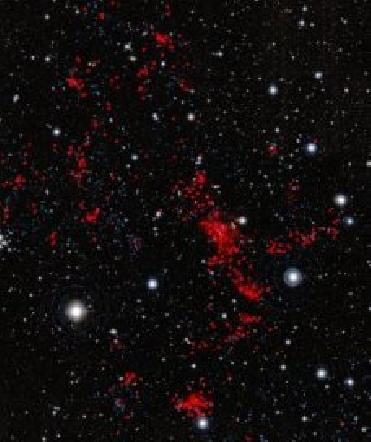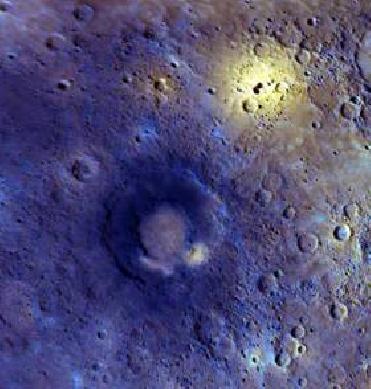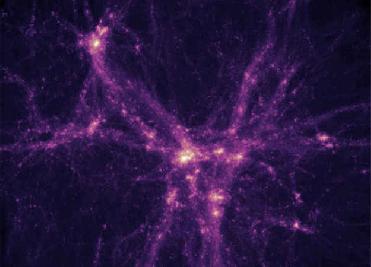
The galaxy structure discovered in the distant Universe. Image credit: ESO
PARIS (BNS): Discovery of a gigantic, so far unknown distant galaxy cluster seven billion light-years away has helped astronomers delve deep into the �cosmic web� and how it formed.
�Matter is not distributed uniformly in the Universe. In our cosmic vicinity, stars form in galaxies and galaxies usually form groups and clusters of galaxies. The most widely accepted cosmological theories predict that matter also clumps on a larger scale in the so-called �cosmic web�, in which galaxies, embedded in filaments stretching between voids, create a gigantic wispy structure,� says Masayuki Tanaka from European Southern Observatory, who led the new study.
These filaments are millions of light years long and constitute the �skeleton� of the Universe: galaxies gather around them, and immense galaxy clusters form at their intersections, lurking like giant spiders waiting for more matter to digest.
Scientists are struggling to determine how they swirl into existence. Although massive filamentary structures have been often observed at relatively small distances from Earth, solid proof of their existence in the more distant Universe has been lacking until now.
Two ground-based telescopes have studied in greater detail a large structure surrounding the distant cluster of galaxies and measured the distances of over 150 galaxies from Earth.
These observations have enabled astronomers identify a bunch of galaxies surrounding the main galaxy cluster. They have also distinguished tens of such clumps, each typically ten times as massive as our Milky Way galaxy � and some as much as a thousand times more massive � while they estimate that the mass of the cluster is at least ten thousand times the mass of Milky Way.
Some of the clumps are feeling the fatal gravitational pull of the cluster, and will eventually fall into it, ESO said.
�This is the first time that we have observed such a rich and prominent structure in the distant Universe,� says Tanaka. �We can now move from demography to sociology and study how the properties of galaxies depend on their environment, at a time when the Universe was only two thirds of its present age.�
 Previous Article
Previous Article Next Article
Next Article













The Indian Air Force, in its flight trials evaluation report submitted before the Defence Ministry l..
view articleAn insight into the Medium Multi-Role Combat Aircraft competition...
view articleSky enthusiasts can now spot the International Space Station (ISS) commanded by Indian-American astr..
view article